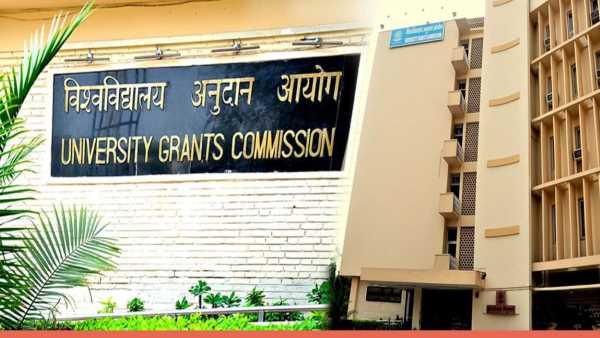UGC introduces short-term skill courses in universities

UGC introduces short-term skill courses in universities
On Thursday, officials announced that the University Grants Commission (UGC) has given its approval to guidelines for the implementation of short-term industry-relevant certificate courses in higher educational institutes (HEIs).
The aim of these courses is to address the skill gap and enhance the productivity of students in the workplace.
The Commission approved the “guidelines for the implementation of short-term skill development courses in higher educational institutes (HEIs)” during a meeting held on Thursday. The draft of these guidelines will be made available to the public soon, inviting feedback from stakeholders.
As per the information provided, universities and colleges will now provide short-term skill development courses in any field. These courses must have a minimum of 12 credits and a maximum of 30 credits, as per the new guidelines.
As per the information received, this endeavour aligns with the goal of the National Education Policy (NEP) 2020, which promotes a shift from the conventional method of memorization and content-focused learning to a more comprehensive approach. The certification courses for short-term skill development will empower students to attain the desired level of competence and acquire supplementary skills to enhance their abilities. This will facilitate their transition into the job market.
Additionally, these courses are open to students who are currently pursuing degrees or diplomas at the HEIs, as well as individuals who have successfully completed class 12 or its equivalent. He further added that even students who have dropped out of colleges or universities can also enroll in these courses.
The main objective is to equip these students with the necessary skills to enhance their employability. As per the draft guidelines, which have been reviewed by HT, all HEIs that possess the required infrastructure and training capacity will be eligible to offer short-term skill development courses, provided they obtain the necessary approval from their respective statutory bodies or boards of management.
The proposed outline presented a range of emerging fields in which the curriculum could incorporate, encompassing Artificial Intelligence (AI), robotics, IoT (Internet of Things), Data Science and Analytics, Cloud Computing, 5G Connectivity, cyber security, mobile communication, fashion technology, Yogic Sciences, and start-ups and entrepreneurship, among other areas.
According to these instructions, the higher education institutions (HEIs) are required to create a “Centre for Skill Development Courses” led by a senior professor to introduce these courses. The center will be responsible for keeping track of local job opportunities, skill requirements for the local industry in the region, and providing data support for these courses. Additionally, the center will oversee the design, adoption, and delivery of the short-duration skill development courses, as stated in the draft.
The establishment of the Centre can be done either independently by the HEIs or in partnership with the industry. As per the guidelines, the Center is required to publish essential information on the HEI’s website, including the names of the short term skill development courses, available seats, admission criteria, course structure, fee structure, details of enrolled students, and certificates awarded for each course.
The draft guidelines stated that an External Committee, appointed by the Vice-Chancellor/Principal, will assess the performance of the center every three years. In terms of course structure, the guidelines mentioned that the duration of courses will range from three to six months, with a strong emphasis on practical learning. The maximum number of students allowed in a short-term skill development course should not exceed 60 per cohort. However, the Higher Education Institution (HEI) has the flexibility to start multiple cohorts based on the demand and availability of infrastructure and faculty.
The curriculum for each course will consist of a suitable combination of general and skill components. The skill component will account for a minimum of 60% and can go up to 70% of the total credits. This component will include practical classes in laboratories, workshops, industry premises, and other forms of hands-on training within the HEI’s catchment area.












